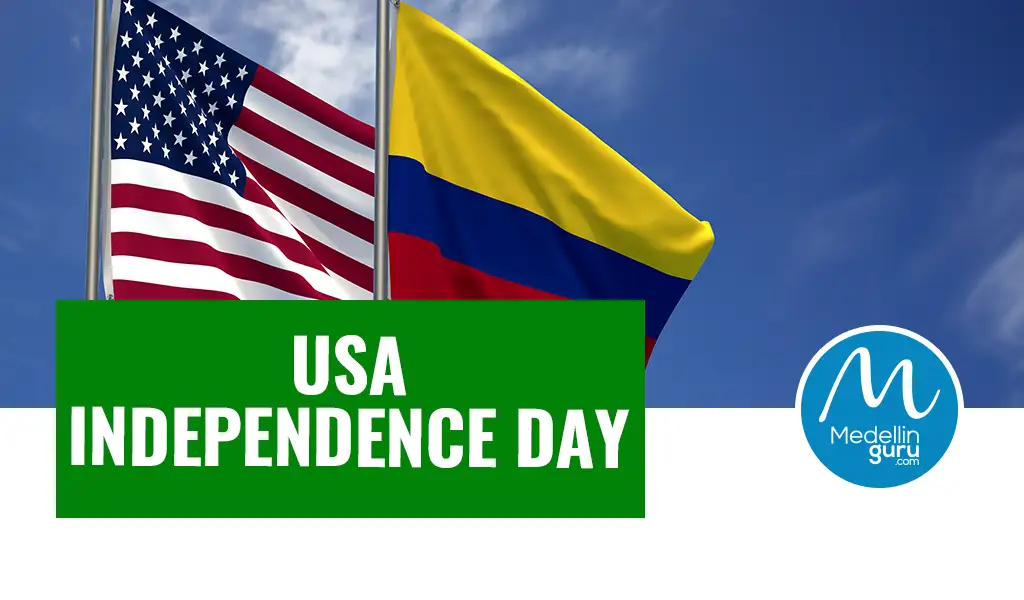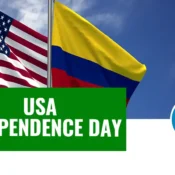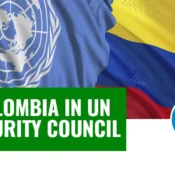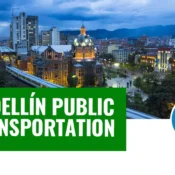Usa Independence Day, observed annually on July 4th, is a profoundly significant national holiday that commemorates the adoption of the Declaration of Independence in 1776, marking the nascent country’s formal separation from British rule. This pivotal moment in history established the United States as an independent nation, free from colonial governance and ready to forge its own destiny.
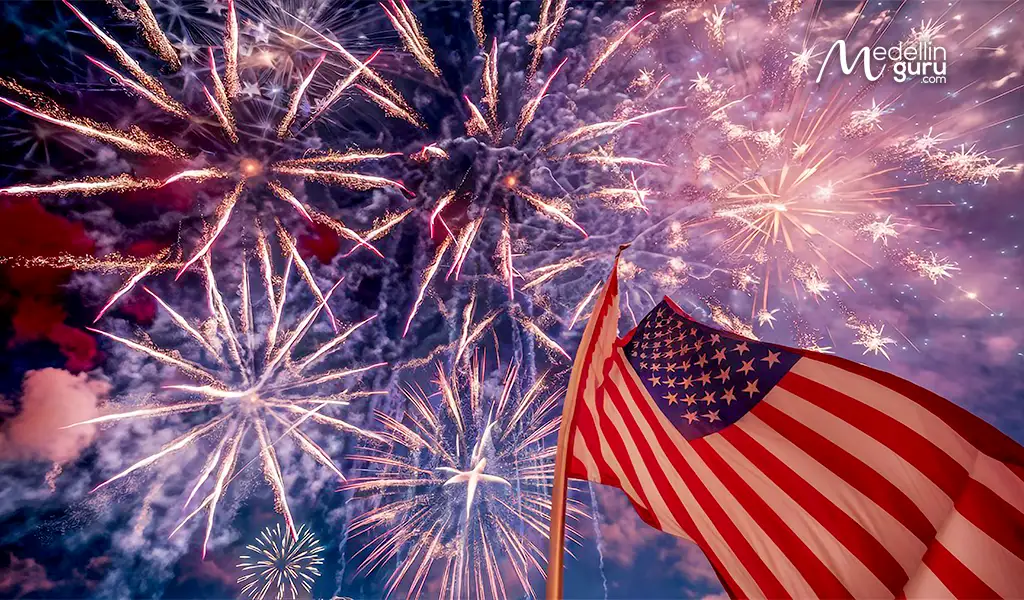
The celebration of the USA Independence Day is a vibrant tapestry of traditions that unites communities across the nation. Parades, often featuring marching bands, elaborate floats, and patriotic displays, wind through city streets and small towns alike, drawing enthusiastic crowds. Concerts, ranging from local band performances to large-scale orchestral events, fill the air with music, frequently culminating in stirring renditions of patriotic songs. Fireworks displays, perhaps the most iconic symbol of the holiday, illuminate the night sky with dazzling bursts of color and light. Beyond these spectacles, various cultural events, including historical reenactments, community picnics, barbecues, and sporting events, contribute to the festive atmosphere, fostering a sense of shared heritage and camaraderie.
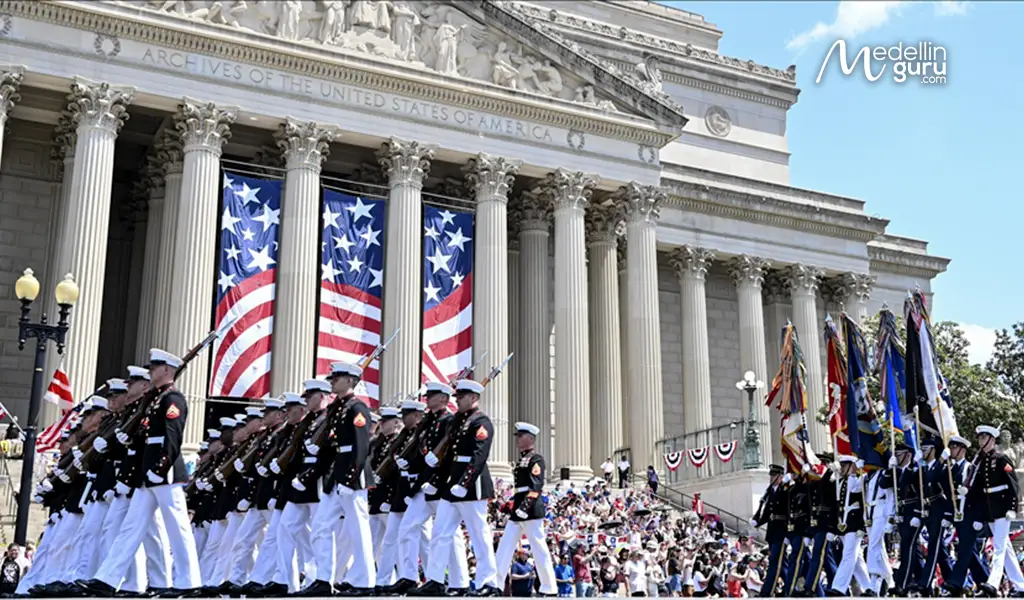
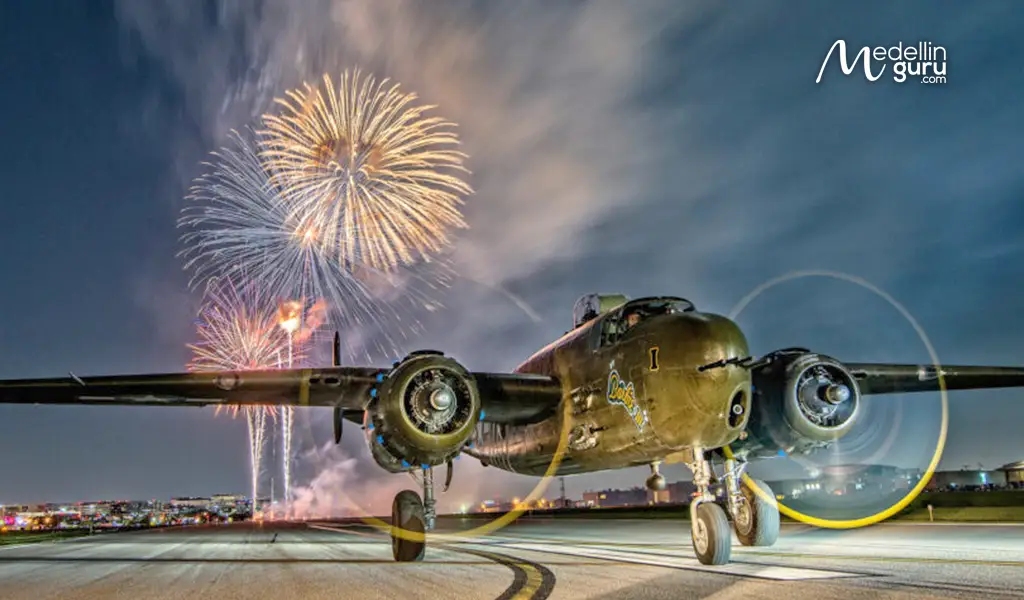
For American expats scattered across the globe, and in our case, in Colombia, Independence Day holds particular significance. It serves as a powerful reminder of their roots and a dedicated occasion to unite, often in expat communities, to collectively honor their history, culture, and national pride. These gatherings, whether large organized events or intimate get-togethers, provide a vital connection to home, allowing expats to share stories, traditions, and a sense of belonging, reinforcing their identity as Americans, regardless of their geographical location.
It is a day not just of celebration, but of reflection on the principles of liberty and self-governance upon which the nation was founded, inspiring continued appreciation for the freedoms and values that define American pride.
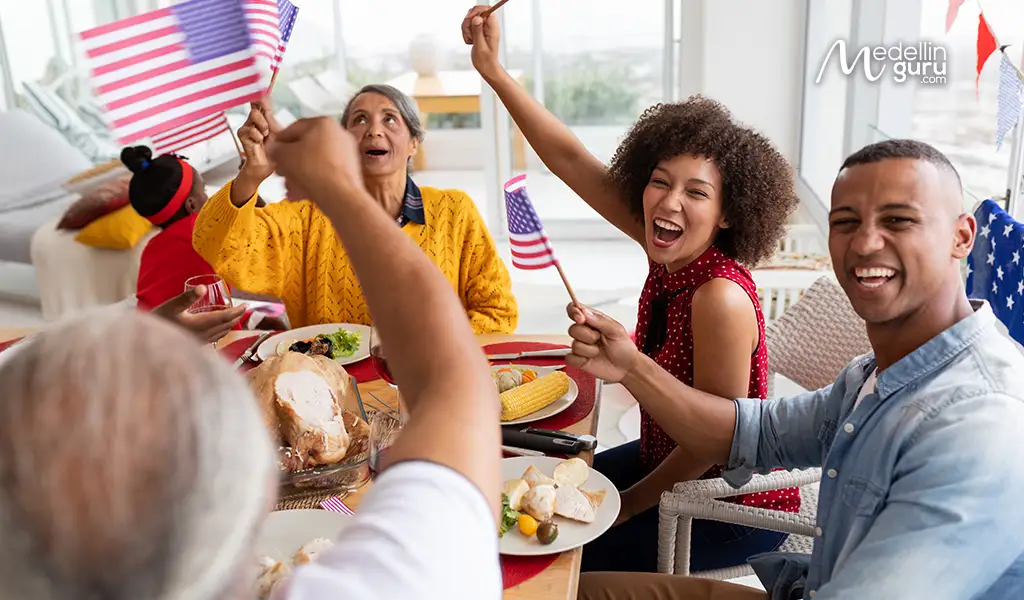
The History of
the USA Independence
The Fourth of July, celebrated annually as Independence Day, marks the pivotal moment in 1776 when the Thirteen Colonies declared their separation from British rule. This declaration was the culmination of years of growing tensions, philosophical debates, and escalating conflicts between the American colonists and the British Crown.
However, this event was not merely an isolated incident, but it was also the result of a widespread discontent that would lead to several key actions and events that were decisive for the unity of the colonies, which would lead to the Independence of the United States, which we’ll meet next but after knowing a little context until the first steps to independence:
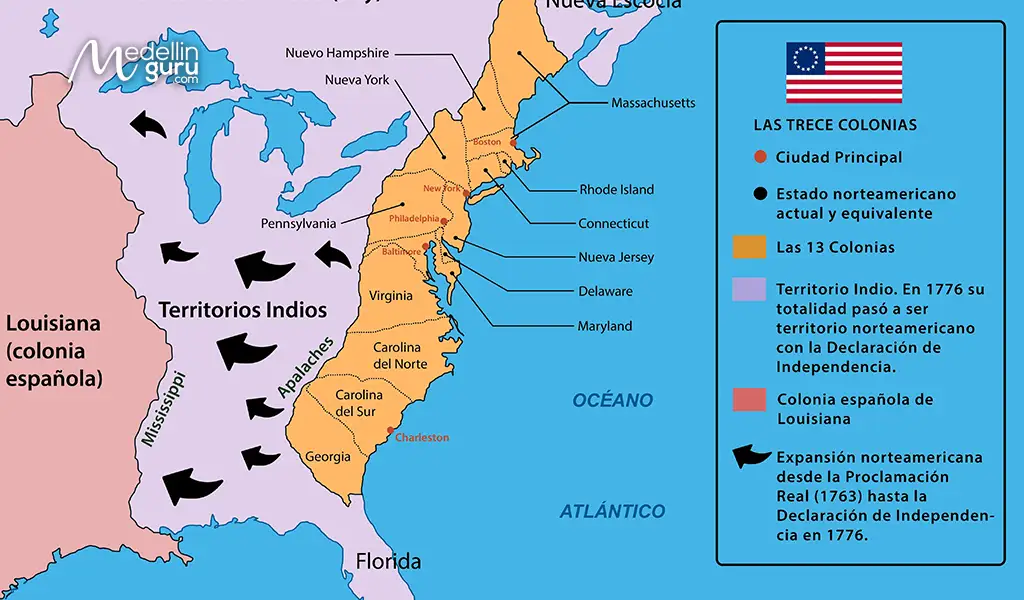
During the 17th and 18th centuries, much of what is now the United States consisted of 13 British colonies located on the eastern coast of North America. These colonies were founded by England starting in 1607 (with Jamestown, Virginia) and grew under a colonial system that allowed for some local autonomy, but always under the control of the British Crown and the Parliament of the United Kingdom.
During this period, Europe was in constant imperial competition. France, Spain, and Great Britain fought for dominance in America. This led to the Seven Years’ War (1756–1763), known in America as the French and Indian War, where British and colonists fought against France and its indigenous allies for control of the territory.
The British victory in 1763 eliminated France as a power in North America but left the United Kingdom with huge debts. To recoup the money spent on the war, the British government decided to raise taxes on the colonies and exert more direct control over their affairs, which dramatically altered the relationship between the colonies and the mother country.
That same year, King George III issued the Proclamation of 1763, which forbade colonists from settling west of the Appalachians to avoid new conflicts with indigenous peoples. Although it was intended for peacekeeping purposes, the colonists viewed it as an unjust restriction on their freedom and economic opportunity, fueling early resentment toward British control.
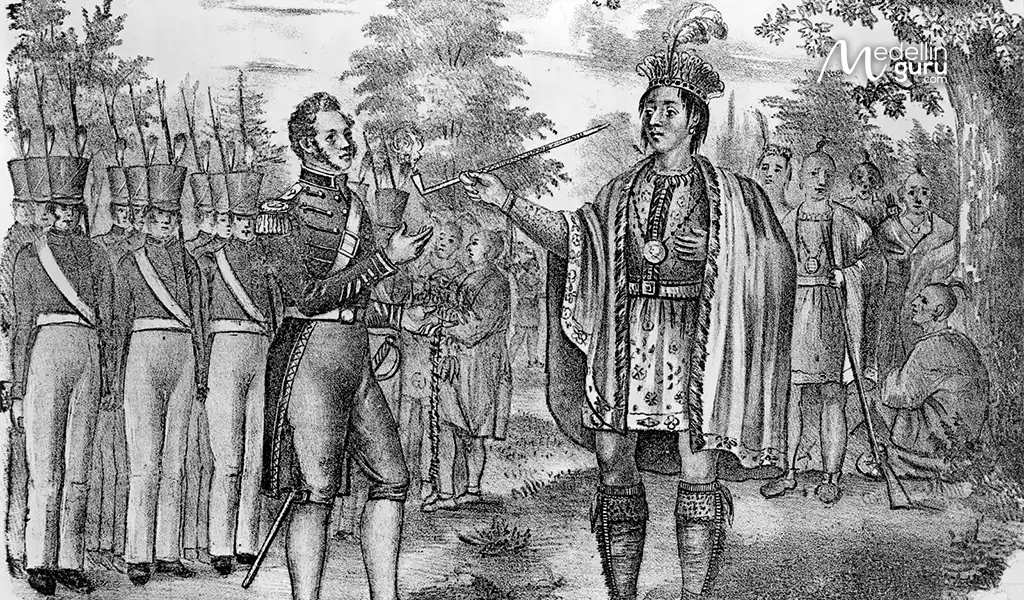
Here is where our timeline will begin:
Historic Dates related to USA Independence
October 7th, 1765Stamp Act & Quartering Act
The Stamp Act imposed a direct tax on printed materials, while the Quartering Act required colonists to house British soldiers. These measures were seen as violations of colonial rights, especially taxation without representation, sparking widespread protests and laying the foundation for organized resistance.
1766Declaratory Act
Following the repeal of the unpopular Stamp Act, Parliament passed the Declaratory Act to affirm its authority to legislate for the colonies “in all cases whatsoever.” While seemingly conciliatory, it revealed Britain’s unwillingness to grant the colonies any real autonomy, intensifying colonial fears of tyranny.
June 15 & July 2, 1767Townshend Acts
These acts imposed import duties on essential goods such as glass, paper, and tea. They reignited tensions and led to boycotts of British goods. Colonial resistance grew stronger, and the acts helped unite different colonies in protest against economic exploitation.
March 5th, 1770Boston Massacre
A street clash between colonists and British soldiers turned deadly when five colonists were shot and killed. The incident was widely publicized by colonial leaders such as Paul Revere and Samuel Adams as proof of British brutality, thereby inflaming anti-British sentiment and mobilizing public opinion.
December 16th, 1773Tea Act & Boston Tea Party
The Tea Act allowed the British East India Company to sell tea directly to the colonies, undercutting local merchants. In response, colonists staged the Boston Tea Party, dumping 342 chests of tea into Boston Harbor. It was a bold act of defiance that prompted harsh British retaliation.
1774Intolerable Acts & 1st Continental Congress
In retaliation for the Boston Tea Party, Parliament passed the Intolerable Acts, closing Boston Harbor and dissolving local governments. The colonies responded by convening the First Continental Congress, a unified body that petitioned the king and began preparations for self-defense.
March 23rd, 1775Patrick Henry’s Speech
At the Virginia Convention, Patrick Henry delivered a fiery speech ending with “Give me liberty, or give me death!” It captured the urgency of the moment and became a rallying cry for those who believed armed resistance was the only path left.
1775Battles of Lexington & Concord / Paul Revere’s Ride
These were the first armed conflicts between colonial militias and British troops. Paul Revere’s midnight ride warned of the British approach. The battles proved the colonies were willing to take up arms to defend their rights, marking the beginning of the Revolutionary War.
June 17th, 1775Battle of Bunker Hill
Although technically a British victory, the battle in Boston demonstrated that colonial militias could hold their own against professional British soldiers. The high British casualties shocked the empire and bolstered colonial confidence in their fight for independence.
January 10th, 1776Common Sense by Thomas Paine
Paine’s pamphlet argued for complete independence from Britain in plain, persuasive language. It swayed many undecided colonists toward supporting independence and laid the ideological groundwork for the Declaration of Independence.
July 4th, 1776Declaration of Independence
The Continental Congress approved the resolution for independence on July 2 and adopted the final text of the Declaration on July 4. Authored primarily by Thomas Jefferson, the document justified separation based on Enlightenment principles of individual rights and proclaimed that the 13 colonies were no longer part of the British Empire and that they constituted themselves as the United States of America
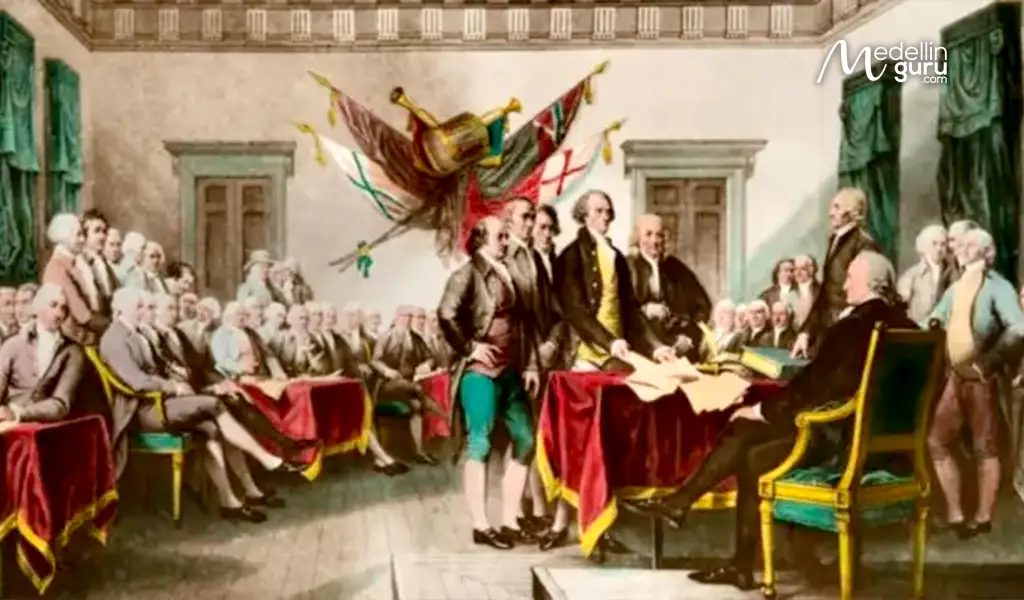
The Declaration’s opening paragraphs are among the most famous and influential words in history:
“We hold these truths to be self-evident, that all men are created equal, that they are endowed by their Creator with certain unalienable Rights, that among these are Life, Liberty and the pursuit of Happiness.—That to secure these rights, Governments are instituted among Men, deriving their just powers from the consent of the governed,—That whenever any Form of Government becomes destructive of these ends, it is the Right of the People to alter or to abolish it, and to institute new Government…”
While the Declaration marked a definitive break from British rule, the American Revolutionary War continued for several more years, culminating in the Treaty of Paris in 1783, which formally recognized the United States as an independent nation. The Fourth of July thus commemorates not just the signing of a document, but the audacious spirit of a people determined to forge their own destiny and establish a nation founded on the principles of liberty, self-governance, and individual rights.
That is why Independence Day in the United States is celebrated on July 4, 1776, symbolizing the political and moral will of the colonists to break away from the British monarchy, not the British approval.
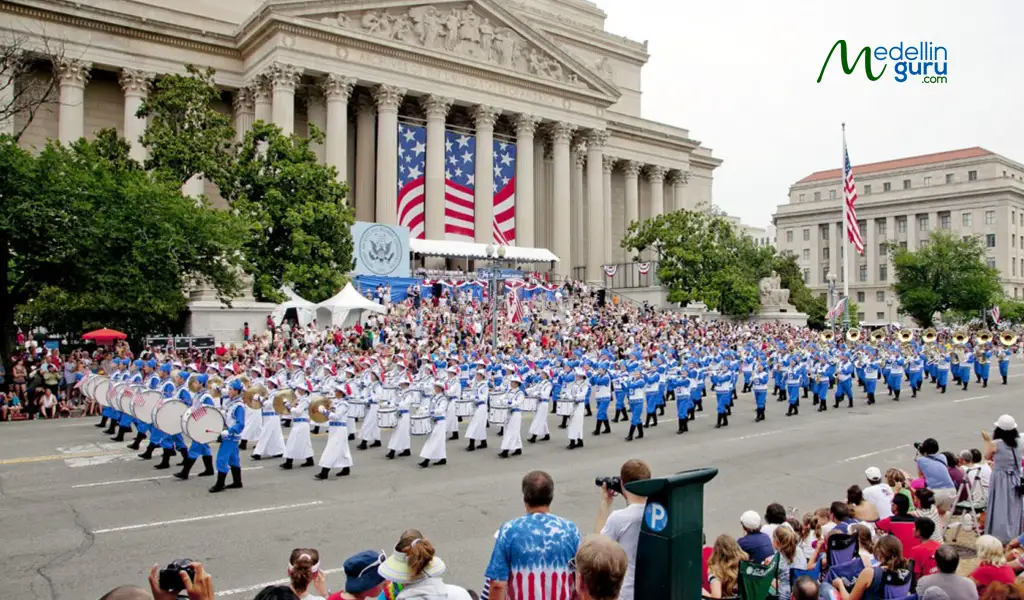
Patriots: Leaders Who Make the USA’s Independence
The achievement of independence was not a spontaneous event but the result of years of struggle, sacrifice, and the unwavering dedication of a diverse group of individuals known as patriots. These were the visionary leaders, thinkers, soldiers, and citizens who dared to challenge the might of an empire and envision a new nation founded on principles of self-governance and individual freedom.
Among the most prominent patriots and leaders were figures like
George Washington
The Commander-in-Chief of the Continental Army, whose military leadership and perseverance were instrumental in securing victory against the British. His steadfastness during the harsh winters and complex campaigns inspired his troops and the nascent nation.
Thomas Jefferson
The principal author of the Declaration of Independence, whose eloquent words articulated the core ideals of the American Revolution. His intellectual contributions provided the philosophical framework for the new republic.
Benjamin Franklin
A polymath, diplomat, and one of the Founding Fathers, Franklin’s diplomatic efforts in France secured crucial alliances and financial support for the American cause, proving vital to the war effort.
John Adams
A passionate advocate for independence and a key figure in the Continental Congress. His legal acumen and unwavering commitment to the cause helped push for the Declaration’s adoption.
Samuel Adams
A powerful orator and organizer, often considered one of the most influential figures in stirring colonial resistance against British policies. He was a master of political agitation and played a crucial role in mobilizing public opinion.
Paul Revere
Famous for his midnight ride, warning colonial militias of approaching British forces, embodying the spirit of citizen vigilance and resistance.
Abigail Adams
A remarkable early advocate for women’s rights and an influential correspondent with her husband, John Adams. Her letters provide invaluable insight into the challenges and aspirations of the revolutionary era.
Beyond these well-known figures, countless ordinary men and women contributed to the independence movement. Farmers, artisans, merchants, and laborers—both free and enslaved—played their part, whether by joining militias, providing supplies, sharing intelligence, or simply enduring the hardships of war. Their collective courage and determination were the actual engine of the revolution.
Places to Commemorate the USA Independence Day in Colombia
USA Independence Day is a joyous celebration and reflection on the nation’s journey to freedom. Join us as we explore the significance and historical importance of celebrating July 4th as an expat in Colombia. If you want to enjoy this or other celebration days in Colombia, don’t forget to process your visa on time. Click the green button below, and we will redirect you to our reliable partner expatgroup.co.
Here are some recommended places for expats in Colombia who want to honor or celebrate U.S. Independence:
U.S Embassy in Colombia
These are official U.S. government spaces that occasionally host private or invitation-only July 4th events, particularly for U.S. citizens abroad. You can also connect with services or register your presence as an American citizen.
Follow their social media for updates on public events to be aware of celebrations and homage.
American Bars, Restaurants, and Sports Pubs
Great places to meet fellow expats and enjoy American-style celebrations on July 4th. Here are the top picks:
- Bogotá: Bogota offers a variety of American-style bars, restaurants, and sports pubs. TripAdvisor lists several American restaurants, including Tremé, Hooters Zona T, and Ugly American Bar & Grill. For sports bars, options include Hotel Americano and Hotel Habitel Select. Additionally, many bars and pubs offer American-style food and a lively atmosphere, such as 58byHouse and Cabrera Resto-Bar according to TripAdvisor.
- Medellín: Here are some top American-style bars, restaurants, and sports pubs in Medellín where you can catch live games, enjoy burgers, wings, and a vibrant atmosphere for USA Independence Day
- Cartagena: Celebrate the 4th of July in Cartagena like a true American because the city offers excellent American-style bars and sports pubs where you can feel right at home. Head to the lively Clock Pub in the heart of the historic center for craft beer, pub food, and sports on multiple screens. If you’re in Bocagrande, Vibe Gastrobar is a favorite among expats for its modern American menu and live game screenings. For a more elevated experience, enjoy the rooftop view and BBQ flavors at Coliseo Sport Bar 84. German-American fusion lovers can try León de Baviera. Wherever you go, Cartagena offers a festive and flavorful way to toast to freedom.
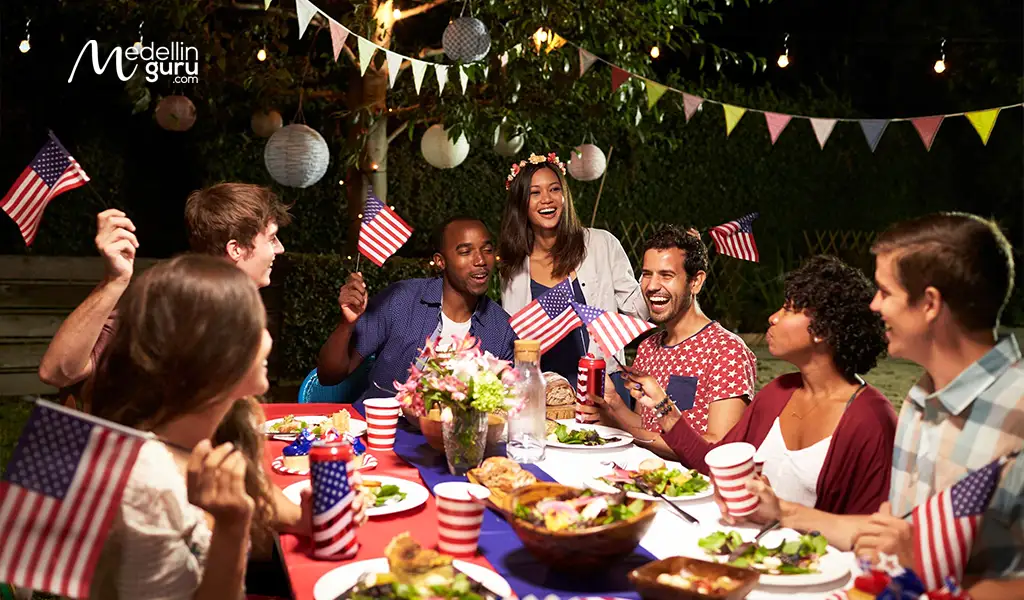
Host Your Own Gathering
Many expats in Colombia commemorate July 4th by hosting a BBQ or picnic with friends. What could be more quintessentially American than a classic BBQ? Take advantage of warm weather in Medellín, Cartagena, or Cali, the vast variety offered in Bogotá, or the peaceful feeling in cities such as Armenia, Pereira, Manizales, or Bucaramanga, and throw a cookout in your backyard. Most supermarkets in the area offer a variety of meats like burgers, sausages, and chicken wings, so consider buying in bulk. Pair these with potatoes and salads, and if you’re in the mood, you could even bake a pie for dessert. You’ll also find American beers and those familiar red cups at most tiendas and shops to ensure your celebration is complete.
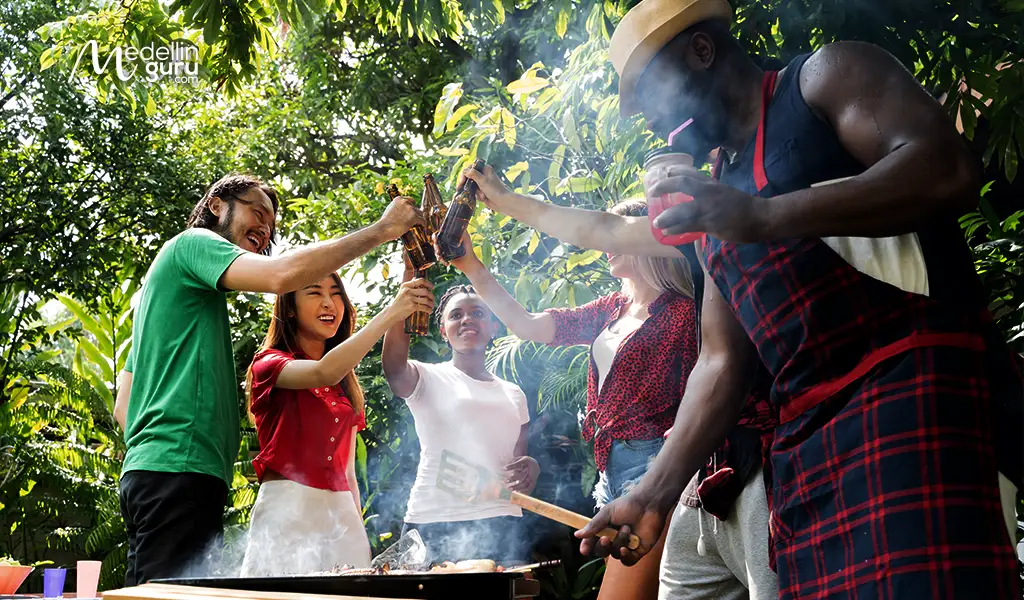
Gather with other expats in Colombia
If you’re in Medellín or other Colomian cities by yourself and want to meet up with other solo travelers on July 4th, there are a number of platforms and groups to organize an event and make new friends. Generally, expats in the city are very welcoming and often embrace the opportunity to reminisce about their homeland, so spending the day with compatriots can be an awesome experience.
Post in these groups and suggest some July 4th activities to the community. You can also join the Medellín Gurú Facebook Group to connect with other expats and stay informed about upcoming celebrations by clicking the link on the right side.
Colombia Expats Networking Hub
🌟 Welcome to Colombia Expats Networking Hub! 🌎 Join to our community where you can connect with fellow expatriates, share your experiences, and gather invaluable insights about your life in Colombia. 🌆
Join Now!
Advice for celebrations of the USA Independence Day as an expat in Colombia
If you are in Colombia and you want to join the celebrations, this can be an opportunity to immerse yourself in the local culture and share in the national pride. Here are some ways to participate and enjoy the festivities:
-
Dress in Red, White, and Blue
Embrace the spirit of the 4th of July by wearing red, white, and blue. Show pride in your American roots while also respecting the local culture. You can even incorporate some Colombian elements into your outfit for a unique blend!
-
Display American Flags
Consider hanging an American flag in your home to celebrate the occasion. This gesture not only shows your patriotism but also invites conversation with your Colombian friends about American culture and traditions.
-
Organize a 4th of July Barbecue or Picnic
Host a barbecue or picnic and invite locals and fellow expats. Share traditional American foods, such as burgers, hot dogs, and apple pie. It’s a great way to celebrate while introducing others to American culture.
-
Attend Local Festivities
Check out any local 4th of July events organized by the American community or expat groups. Participate in parades or gatherings if available, and enjoy the festivities with fellow Americans and locals.
-
Engage with Locals
Ask locals about their perception of American Independence Day and share your own experiences. Engaging in these conversations can foster mutual respect and understanding, enriching your expat experience.
-
Join Expat Groups or Online Communities
Connect with fellow expats through social media or local organizations. These groups often organize events for the 4th of July and provide a support network where you can share ideas for celebrating while abroad.
-
Avoid Fireworks
Although it is a very common activity on this day in the United States, avoid using them on your own. Instead, look for controlled displays organized in a safe location and approved by local authorities in Colombia so that you do not violate any laws, disturb your neighbors, or cause any material damage.
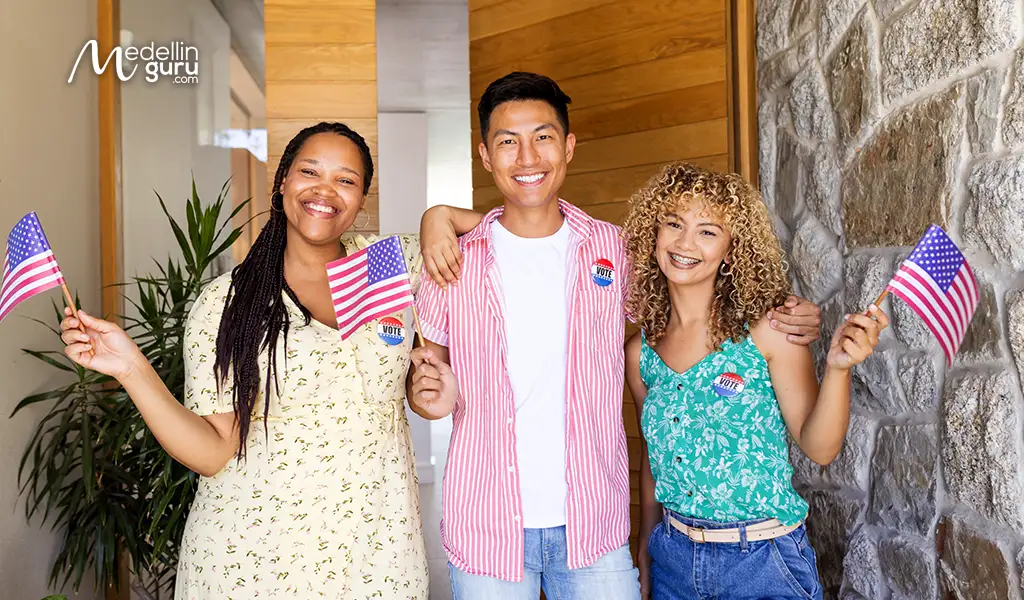
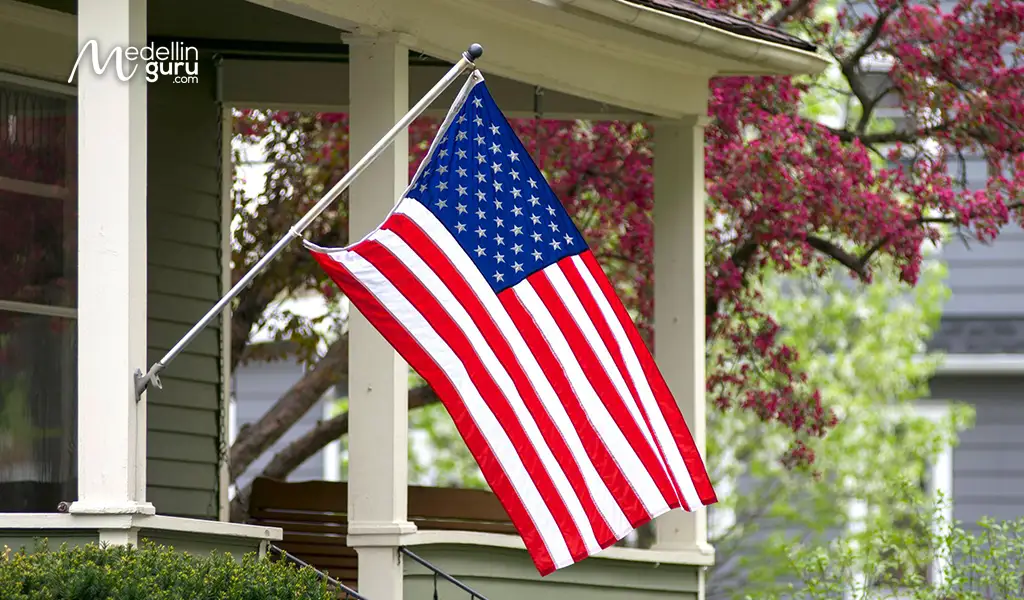
Celebrate while you take care of yourself, with a reliable travel health insurance that will accompany you on your journey through Colombia and around the world.
 Open
Open

Featured
Assist Card
Health Insurance for Expats in Colombia 🇨🇴
(41 Reviews)
Medellín
, Antioquia
Healthcare & Medical+1Insurance
The Bottom Line: Celebrating the 4th of July: USA Independence Day
Celebrating the 4th of July as an expat in Colombia allows for a heartfelt connection to American heritage, providing a chance to unite with fellow expatriates, share traditions, and reflect on the values of freedom and independence that define the nation. Embrace this vibrant holiday with community gatherings, cultural events, and a shared sense of pride, all while honoring your roots from afar.
